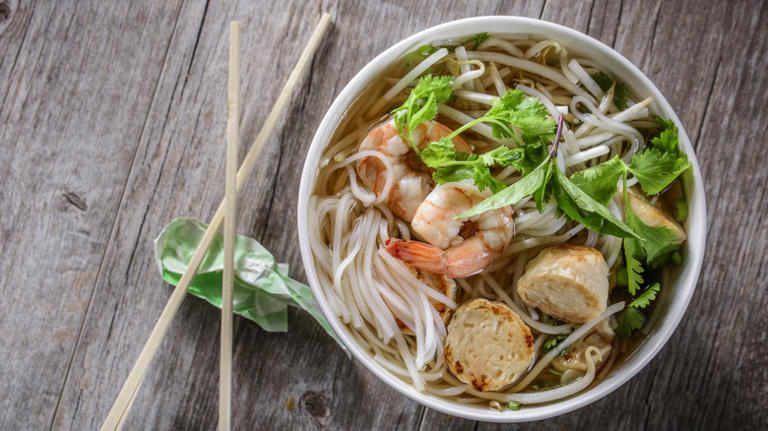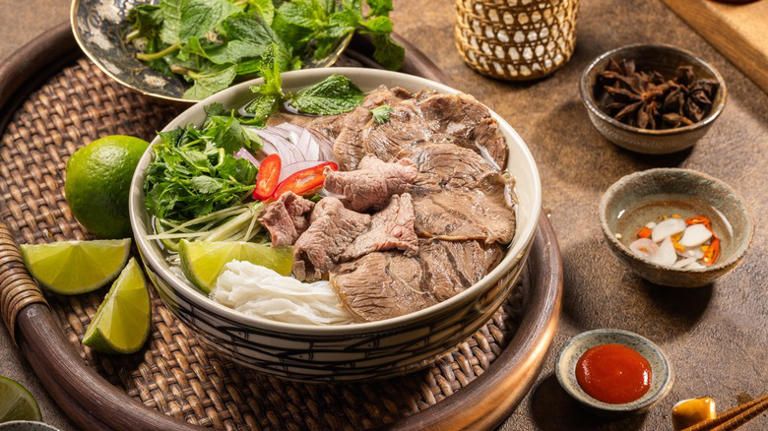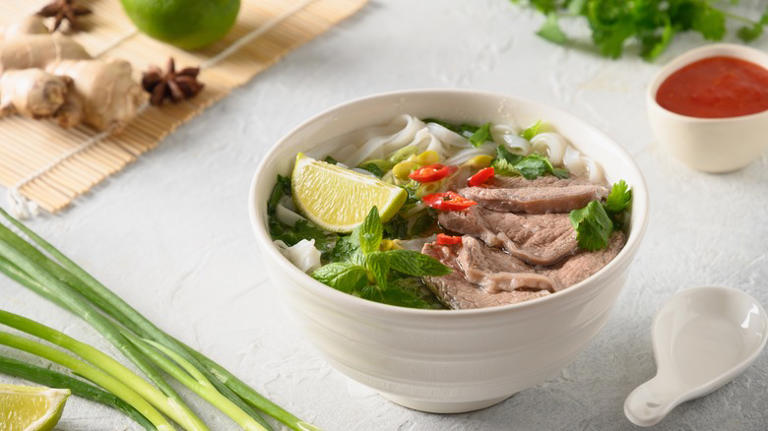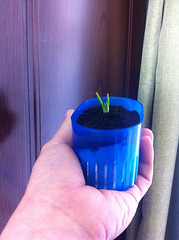Archive
10 lessons… in life.
10 Lessons 99 Percent of People Learn a Bit Too Late in Life, According to Psychology
10 Lessons 99 Percent Of People Learn A Bit Too Late In Life, According To Psychology
By Holly Burns
10 Lessons 99 Percent of People Learn a Bit Too Late in Life, According to Psychology
Life is a journey filled with ups and downs, joys and sorrows, and countless opportunities for growth and self-discovery. Along the way, we all learn valuable lessons that shape our perspectives and guide our actions. However, many of these crucial life lessons are often discovered too late, after we’ve already faced the consequences of not knowing them sooner. According to psychological research and insights, we’ll explore ten essential lessons that 99 percent of people learn too late.
1. Self-Acceptance Is Essential To Happiness
One of the most fundamental lessons we learn in life is the importance of self-acceptance. Many people spend years trying to change themselves to fit societal norms or personal expectations, only to realize that true happiness comes from embracing oneself, flaws and all. Psychological research consistently shows that self-acceptance is vital to mental health and well-being. When we learn to love and accept ourselves unconditionally, we experience greater confidence, resilience, and overall life satisfaction.
However, the journey to self-acceptance is not always easy. It requires us to confront our deepest insecurities, challenge negative self-talk, and let go of the need for external validation. Many struggle with this process for years, often well into adulthood, before finally learning to accept and love themselves truly.
2. Failure Is A Stepping Stone To Success
Another lesson that many people learn too late is the value of failure. In a society that often equates success with perfection, it’s easy to view failure as a sign of weakness or inadequacy. However, psychological research has shown that failure is an essential part of the learning and growth process. When we encounter obstacles and setbacks, we can develop resilience, adaptability, and problem-solving skills crucial for long-term success.
Many successful people, from entrepreneurs to artists to athletes, have faced significant failures on their path to success. What sets them apart is their ability to view failure as a learning opportunity rather than a dead end. They understand that every failure brings them one step closer to their goals if they are willing to learn from their mistakes and keep pushing forward.
3. Comparison Is The Thief Of Joy
In the age of social media, it’s easier than ever to fall into the trap of comparing ourselves to others. We see curated images of perfect lives, successful careers, and enviable relationships, and we can’t help but feel like we’re falling short in comparison. However, psychological research has shown that social comparison is a surefire way to rob ourselves of joy and contentment.
When we compare ourselves to others, we often overlook our unique strengths, accomplishments, and blessings. We get caught up in a never-ending cycle of striving and dissatisfaction, constantly feeling like we’re not quite good enough. The key to breaking free from this cycle is to focus on our personal growth and progress rather than measuring ourselves against external standards.
4. Boundaries Are Essential For Healthy Relationships
Many people struggle with setting and maintaining healthy boundaries in their relationships, often out of fear of rejection or conflict. However, psychological research consistently shows that boundaries are essential for building strong, mutually respectful connections with others.
When we fail to set clear boundaries, we open ourselves up to being taken advantage of, disrespected, or abused. We may find ourselves saying yes to things we don’t want to do or tolerating behavior that makes us uncomfortable. On the other hand, when we learn to assert our needs and limits in a kind but firm way, we create the foundation for more authentic and fulfilling relationships.
5. Vulnerability Is A Strength, Not A Weakness
In a culture that often equates vulnerability with weakness, many people learn the power of being open and authentic with others too late. Psychological research has shown that vulnerability is vital to building meaningful connections and fostering personal growth.
When we allow ourselves to be vulnerable, we create space for others to do the same. We show that we are human, with fears, doubts, and imperfections like everyone else. This shared humanity allows us to build trust, empathy, and genuine understanding with others.
However, vulnerability can be scary, especially if hurt or betrayed. We must let go of our defenses and risk being seen for who we are. But when we find the courage to be vulnerable, we open ourselves to a world of deeper connections and personal growth.
6. Gratitude Is A Powerful Tool For Happiness
Many people spend their lives chasing happiness, only to realize too late that it was right in front of them all along. Psychological research has consistently shown that gratitude is one of the most powerful tools for cultivating happiness and well-being.
When we take the time to appreciate the good things in our lives, no matter how small, we shift our focus away from what we lack and toward what we have. We begin to see the world through a lens of abundance rather than scarcity, and this shift in perspective can profoundly impact our overall happiness and life satisfaction.
Practicing gratitude doesn’t have to be complicated or time-consuming. It can be as simple as taking a few moments each day to reflect on what we’re thankful for or expressing appreciation to the people who make a positive difference.
7. Forgiveness Liberates The Soul
Holding onto grudges and resentment is like drinking poison and expecting the other person to die. Many people learn the power of forgiveness too late, not just for the person who wronged them, but for their mental and emotional well-being.
Psychological research has shown that forgiveness has many positive outcomes, including reduced stress, improved relationships, and overall life satisfaction. When we forgive others, we release ourselves from anger and bitterness, creating space for healing and growth.
Forgiveness doesn’t mean condoning hurtful behavior or forgetting the past. It simply means consciously letting go of the negative emotions holding us back and moving forward with greater peace and clarity.
8. Time Is Our Most Valuable Resource
In a world that often values productivity and achievement above all else, many people learn the importance of prioritizing their time and energy too late. Psychological research has shown that time pressure and stress can significantly negatively impact our mental and physical health, relationships, and overall quality of life.
Learning to manage our time effectively and set clear priorities is essential for living a balanced and fulfilling life. This may mean saying no to commitments that don’t align with our values or goals, delegating tasks to others, or simply taking time for self-care and relaxation.
9. Happiness Is A Choice, Not A Destination
Many people spend their lives chasing happiness as if it were a finish line to be crossed, only to realize too late that happiness is a choice we make in each moment. Psychological research has shown that our overall well-being is primarily determined by our mindset and perspective rather than our external circumstances.
When we cultivate happiness and contentment in the present moment, regardless of what’s happening around us, we become more resilient and adaptable to life’s challenges. We find joy in the simple things and appreciate the journey as much as the destination.
10. Life Is A Journey Of Continuous Learning And Growth
Finally, perhaps the most critical lesson many people learn too late is that life is a constant learning and growth journey. We are never done evolving and expanding our horizons, no matter how old we are or how much we think we know.
Psychological research has shown that lifelong learning and personal development are essential for maintaining mental sharpness, creativity, and overall life satisfaction. When we approach life with a beginner’s mind, open to new experiences and perspectives, we create endless opportunities for growth and self-discovery.
Case Study: From Struggle To Self-Discovery
Gwen, a 35-year-old nurse, felt unfulfilled and stuck in her personal and professional life. Despite her dedication to her patients, she often felt overwhelmed and unable to find joy in her daily routine. Gwen realized that she had been neglecting her own needs and desires, focusing solely on the expectations of others.
Determined to make a change, Gwen embarked on a journey of self-discovery. She began by setting boundaries in her relationships and learning to say no to commitments that didn’t align with her values. Gwen also started practicing gratitude, taking time each day to appreciate her life’s small moments of beauty and kindness.
As Gwen prioritized her personal growth, she encountered setbacks and challenges. However, she learned to view these obstacles as opportunities for learning and resilience. Gwen began to embrace her vulnerabilities, sharing her struggles and triumphs with trusted friends and family members.
Through her journey, Gwen discovered a newfound sense of purpose and contentment. She realized that happiness was not a destination to be reached but a choice she could make in each moment. Gwen’s story serves as a reminder that personal growth is a lifelong process, filled with ups and downs, but ultimately leading to a more fulfilling and authentic life.
Key Takeaways
Self-acceptance is crucial for happiness and well-being, even though achieving it can be challenging.
Failure is a necessary part of learning and growth and should be viewed as a learning opportunity rather than a setback.
Comparing ourselves to others can rob us of joy and contentment, and it is essential to focus on our own personal growth and progress.
Healthy boundaries are essential for building strong, mutually respectful relationships.
Vulnerability is a strength, not a weakness, and is critical to building deep, meaningful connections with others.
Gratitude is a powerful tool for cultivating happiness and shifting our perspective towards abundance.
Forgiveness liberates us from anger and resentment and creates space for healing and growth.
Time is our most valuable resource, and learning to manage it effectively is essential for living a balanced and fulfilling life.
Happiness is a choice we make in each moment rather than a destination to be reached.
Life is a journey of continuous learning and growth, and approaching it with a beginner’s mind creates endless opportunities for self-discovery and expansion.
Conclusion
These ten life lessons may be simple, but they are profound in their impact on our overall happiness and well-being. By learning to accept ourselves, embrace failure, cultivate gratitude, forgive others, prioritize our time, choose happiness, and never stop learning and growing, we can create a life rich in meaning, purpose, and joy. The journey may not always be easy, but it is always worth it.
Streamline English – app on android
Check out “Streamline English” – https://play.google.com/store/apps/details?id=pontus.cstoigian.hoctienganhstreamline
Streamline English – 4
Streamline English – 3
Streamline English – 2
Streamline English – 1
Why Phở Is Considered A Traditional Vietnamese Breakfast Dish

bowl of pho with chopsticks© 4kodiak/Getty Images
If you’ve ever had a soup craving on a cold day, you’ve likely turned to pho. One of the national dishes of Vietnam, the rich, complex, savory noodle soup starts with seafood and beef flavors and extends outwards from there. It’s a riotous, joyful mix of tastes involving herbs and spices like mint, ginger, cloves, and cilantro, with each bowlful including ingredients such as rice noodles, tofu, thin slices of beef, shrimp, bean sprouts, lime, and chiles.
In Vietnam, though, pho isn’t traditionally eaten the way it is in other countries: In its origin country, pho is traditionally a breakfast dish. The idea of eating a flavorful fish-and/or-meat soup first thing in the morning may seem strange to people who aren’t from Vietnam, but it makes sense if you think about it. Brothy pho sits right in that sweet spot where it’s filling enough to be a complete meal, but it’s also relatively light, meaning it’s not going to make you feel lethargic as you go about your day.
Pho Is Best As A Breakfast Meal In A Hot Country Like Vietnam

bowl of pho with limes© Le Minh Trang/Shutterstock
We don’t know exactly what led to pho’s creation in the first place. We know where and when it originated: In the late 19th and early 20th centuries in northern Vietnam. As far as what led to its evolution, though, we’re basically going off guess-work. It’s possible it evolved from the French meat and vegetable stew known as pot-au-feu (France colonized Vietnam until the mid-1900s), but it may instead derive from a Chinese beef noodle dish, the name of which contains a character with the phonetic pronunciation “fuh.”
Commonly eaten before 9 a.m., pho has long been a favorite choice for breakfast in Vietnam, particularly for workers with physically demanding jobs. In addition to its inherent lightness, it’s also a hot soup — and Vietnam is a tropical country. This means that the coolest parts of the day are generally in the morning, so that’s the time when you’re more likely to want to be warmed up.
Conversely, all of the things that make pho a great choice for breakfast have made it a much harder sell at dinnertime. You’re not as concerned with lightness at dinner since you’re going to be going to sleep soon anyway, and pho is not nearly as substantial as other soup options. It’s also going to be a lot hotter at night, making hot soup less appealing.
Despite Tradition, Pho Is Now Sold At All Times Of The Day

bowl of pho© Lazhko Svetlana/Shutterstock
Even in Vietnam, the customs around pho are changing a bit. Though it’s still commonly eaten in the mornings, you can now get pho pretty much whenever you want, especially in major cities like Hanoi or Ho Chi Minh City. This is partially just humanity in general discovering that breakfast food is fun to eat at any time; the rise of breakfast for dinner certainly isn’t purely a Vietnamese phenomenon.
But in addition to Vietnam’s vastly growing economy, one thing that may have helped change the perspective on pho is its versatility. Though it’s traditionally been light enough to be primarily a breakfast meal, it doesn’t have to be. In southern Vietnam, generally larger portion sizes make pho, among other dishes, far more filling. The other thing about pho is you can add basically whatever you want to it as long as it fits with the flavor profile you’re going for, turning a lighter meal into a heavier one with ease.
While pho’s specific usage in Vietnamese culture might be seeing an evolution, it certainly isn’t losing its cultural place. Change like this — at least in the form of increased availability and, in turn, heightened awareness of culinary traditions — can be considered a good thing.
Read the original article on Daily Meal.
 Dirk Stromberg website
Dirk Stromberg website Ly Hoàng Ly website
Ly Hoàng Ly website Thanh Xuân website
Thanh Xuân website Đỗ Tuấn website
Đỗ Tuấn website Cuong @ bandcamp
Cuong @ bandcamp Cuong @ Free-Score
Cuong @ Free-Score Cuong @ SMP Press
Cuong @ SMP Press Cuong @ SoundCloud
Cuong @ SoundCloud Giao hưởng Beethoven
Giao hưởng Beethoven Hanoian Trio
Hanoian Trio Đương Đại Festival
Đương Đại Festival Paypal Donation to me
Paypal Donation to me





Recent Comments